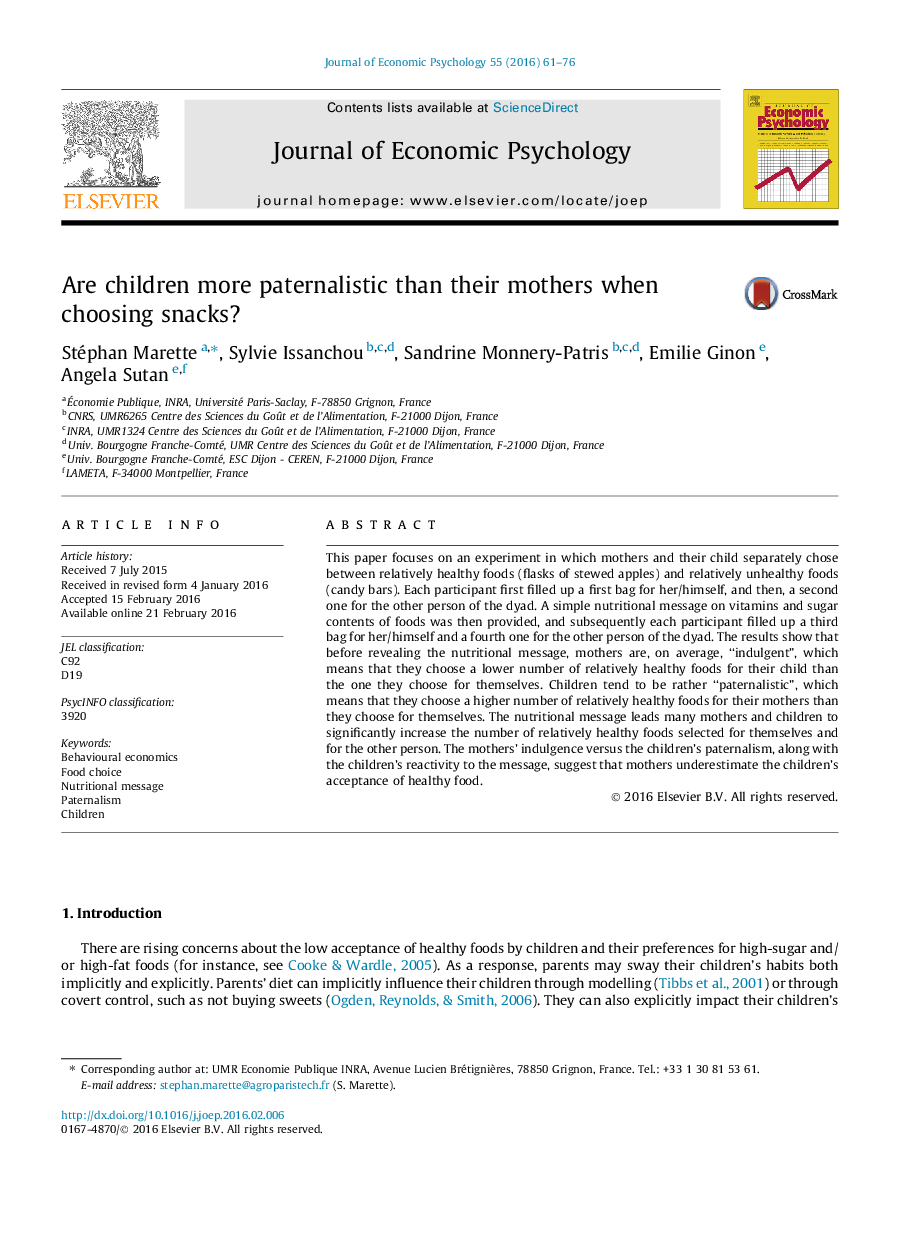| کد مقاله | کد نشریه | سال انتشار | مقاله انگلیسی | نسخه تمام متن |
|---|---|---|---|---|
| 884874 | 1471711 | 2016 | 16 صفحه PDF | دانلود رایگان |
• In a lab, mothers and their child chose between healthy and unhealthy foods.
• Paternalism is defined by a healthier choice for the other person than for oneself.
• Children are more paternalistic than mothers before a revealed message.
• A nutritional message leads many participants to select more healthy foods.
• Mothers underestimate the children’s acceptance of healthy food.
This paper focuses on an experiment in which mothers and their child separately chose between relatively healthy foods (flasks of stewed apples) and relatively unhealthy foods (candy bars). Each participant first filled up a first bag for her/himself, and then, a second one for the other person of the dyad. A simple nutritional message on vitamins and sugar contents of foods was then provided, and subsequently each participant filled up a third bag for her/himself and a fourth one for the other person of the dyad. The results show that before revealing the nutritional message, mothers are, on average, “indulgent”, which means that they choose a lower number of relatively healthy foods for their child than the one they choose for themselves. Children tend to be rather “paternalistic”, which means that they choose a higher number of relatively healthy foods for their mothers than they choose for themselves. The nutritional message leads many mothers and children to significantly increase the number of relatively healthy foods selected for themselves and for the other person. The mothers’ indulgence versus the children’s paternalism, along with the children’s reactivity to the message, suggest that mothers underestimate the children’s acceptance of healthy food.
Journal: Journal of Economic Psychology - Volume 55, August 2016, Pages 61–76
